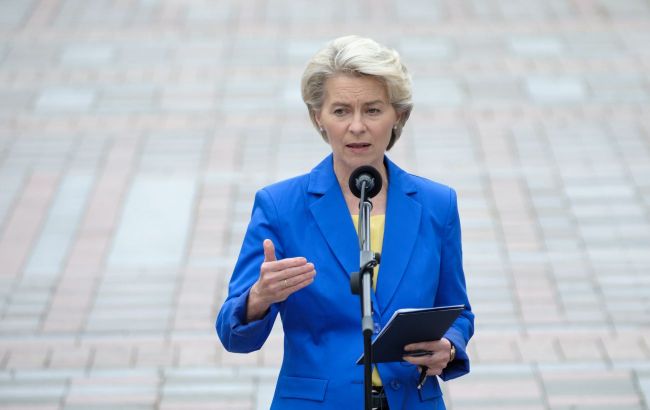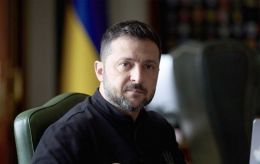European Commission head to demand UAE to stop illegal trade with Russia - Bloomberg

The head of the European Commission, Ursula von der Leyen, will increase pressure on the United Arab Emirates (UAE) to limit the export of sanctioned goods to Russia, according to Bloomberg.
Von der Leyen is set to meet with UAE President Sheikh Mohammed bin Zayed in Abu Dhabi on Thursday. Sources suggest that she will request more cooperation and constructive efforts from Sheikh Mohammed in addressing the issue of sanctions evasion.
The European Union (EU) wishes the UAE, as a first step, to commit to providing more of its trade data. This issue was previously raised by the EU's sanctions envoy, who recently visited the country.
The UAE has witnessed a significant increase in the import of technologies, such as semiconductors and advanced electronics, from Europe and the United States over the past 18 months. Allies of Ukraine have prohibited the shipment of many of these items to Russia due to their military applications.
The UAE has become a key destination for Russian tourists, businessmen, and those leaving their country following the invasion of Ukraine in February of last year. Russian investments in real estate markets in Dubai and Abu Dhabi have sharply risen.
According to the agency Trade Data Monitor, based in Geneva, the EU exported sanctioned goods to the UAE worth $1.8 billion from February 2022 to June 2023. This marks a 55% increase in the export of semiconductors, radio navigation devices, and other goods Russia needs for its missiles, drones, and other weapons systems.
The EU's priority is to combat the transfer of about 30 so-called military items identified in Russian weaponry in Ukraine or needed for its production.
The EU is reportedly disappointed with the UAE's response so far. The EU also seeks to ensure that the UAE does not serve as a conduit for banned Russian goods to enter Europe.
The EU has already imposed sanctions on several organizations registered in the UAE, accusing them of directly supporting the Russian military machine. In June, the bloc introduced a new instrument that allows member states to block the export of critical goods to companies and, ultimately, countries believed to assist Russia in circumventing sanctions. This instrument is likely to be implemented if diplomatic efforts fail.
Sanctions evasion
After the invasion of Ukraine a year ago, EU countries and the Group of Seven (G7) imposed several rounds of sanctions to weaken the Russian military machine and undermine its economy.
However, trade data analysis shows that advanced microchips produced in the EU and other allied countries are being shipped to Russia through third countries such as Turkey, the United Arab Emirates, and Kazakhstan.
RBC-Ukraine reported that while there was a decline in the volume of sales of all electronic components to Russia at the beginning of the full-scale invasion, exports have increased again by the summer of 2023, now fluctuating at pre-war levels. Undoubtedly, some electronics have become more expensive, and each link in the supply chain from manufacturer to Russia requires its "margin." However, the quantity of component deliveries has not decreased.

